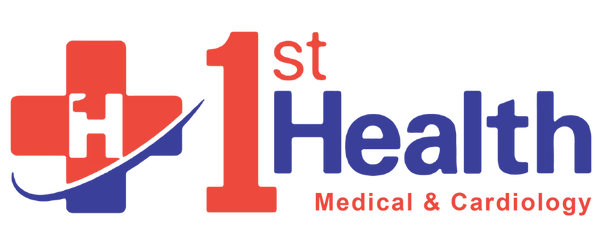Why is Regular Cholesterol Monitoring Important?

Regular Cholesterol Monitoring For Your Heart Health
Cholesterol is a waxy substance found in your blood. It plays a vital role in various bodily functions, like building healthy cells and producing hormones. However, high levels of “bad” cholesterol can contribute to the buildup of plaque in your arteries, increasing the risk of heart disease, stroke, and other cardiovascular issues.This is where Regular Cholesterol Monitoring comes into play.
Regular monitoring is a crucial component of preventive healthcare, allowing you and your doctor to identify potential problems early on and take steps to manage your cholesterol levels.
This comprehensive guide dives deep into the importance of regular cholesterol monitoring, exploring its benefits, recommended intervals, factors impacting testing frequency, and the different types of cholesterol measured.
Why is Regular Cholesterol Monitoring Important?
Early detection is key in preventing and managing heart disease. Here’s why cholesterol monitoring is vital:
- Silent Threat: High cholesterol often shows no symptoms. Monitoring allows for early intervention before any health complications arise.
- Risk Stratification: Cholesterol levels help assess your individual risk of developing heart disease.
- Treatment Guidance: Monitoring allows your doctor to tailor treatment plans based on your specific cholesterol profile and risk factors.
- Monitoring Treatment Effectiveness: Regularly checking cholesterol helps determine if your treatment plan, whether lifestyle modifications or medications, is effectively controlling your levels.
- Peace of Mind: Knowing your cholesterol levels within a healthy range can provide peace of mind and motivate you to maintain healthy habits.
Recommended Intervals for Regular Cholesterol Monitoring
The American Heart Association (AHA) recommends the following intervals for monitoring for adults aged 20 and above:
- Every 4-6 years: For individuals with a low risk of heart disease (no family history, normal weight, healthy lifestyle).
- More frequent monitoring: For those with a higher risk profile due to factors like:
- Family history of heart disease
- High blood pressure
- Diabetes
- Smoking
- Obesity
- Metabolic syndrome
Your doctor will determine the most suitable monitoring schedule based on your individual risk factors and overall health.
Factors Influencing the Frequency of Cholesterol Monitoring
Several factors can influence how often you need your cholesterol checked:
- Overall health: Underlying health conditions like diabetes, high blood pressure, or a history of heart disease will necessitate more frequent monitoring.
- Lifestyle factors: Smoking, unhealthy diet, and physical inactivity increase your risk and require closer monitoring.
- Family history: If you have a close family member with high cholesterol or a history of heart disease, more frequent checks are recommended.
- Treatment plan: If you’re on medication to manage cholesterol, your doctor will monitor your levels more frequently to assess the medication’s effectiveness.
During your doctor’s visit, discuss your individual risk factors and create a personalized cholesterol monitoring plan.
What Does a Cholesterol Test Measure?
A complete cholesterol profile, often referred to as a lipid panel, measures several types of cholesterol:
- LDL Cholesterol (Low-Density Lipoprotein): Often referred to as “bad” cholesterol. High LDL levels contribute to plaque buildup in arteries.
- HDL Cholesterol (High-Density Lipoprotein): Often referred to as “good” cholesterol. HDL helps remove LDL cholesterol from the arteries.
- Total Cholesterol: The combined amount of LDL, HDL, and other types of cholesterol.
- Triglycerides: Another type of fat in the blood. High triglyceride levels can also contribute to heart disease risk.
Your doctor will interpret your individual results based on these different levels and recommend appropriate action steps.
Taking Charge of Your Heart Health with Regular Cholesterol Monitoring
Regular monitoring empowers you to participate actively in your health journey. Here’s how:
- Maintain Healthy Habits: Knowing your cholesterol levels can motivate you to maintain and adopt healthy lifestyle habits like a balanced diet and regular exercise, which can help lower your LDL cholesterol and raise HDL cholesterol.
- Early Intervention: Monitoring allows for early detection of high cholesterol, enabling you and your doctor to address the issue before complications develop.
- Treatment Optimization: If medications are needed, regular monitoring helps ensure your treatment plan is effective and adjusted as needed.
By prioritizing regular cholesterol monitoring, you are taking a proactive step towards safeguarding your heart health and overall well-being.
Taking the Next Step: Schedule Your Cholesterol Test Today
At 1st Health Medical & Cardiology, we are committed to providing comprehensive and personalized care for our patients. Regular cholesterol monitoring is a cornerstone of preventive cardiology. We offer a welcoming environment and state-of-the-art facilities to ensure a smooth and comfortable testing experience.
Schedule an appointment today with our expert team to discuss your cholesterol monitoring needs and create
